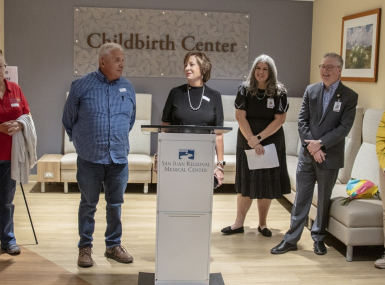Leadership Edge - Aug. 22, 2016
Upcoming Events
Related News
Integrity: A Matter of Skill, Not Will
Do you have integrity? Of course you do. Everyone has integrity. Have you ever met anyone who doesn’t believe he or she “has integrity?”
So, here’s the question? If everyone possesses integrity, why do we see all around us evidence of integrity breaches: in business, sports, academia, even in the clergy and certainly in our world of government?
This question is hardly an academic one for hard-working county officials. You make tough decisions affecting the lives of many. So, even if you are sure that you “have integrity,” wouldn’t it be worthwhile to question whether there might be ways to improve the practice of it?
You might wonder what I mean by “practicing integrity.” Most people don’t view integrity as a practice, the way someone practices law or medicine. In fact, most people believe that integrity is something you have or you don’t. It can’t be learned. If that were the case, the outlook would be pretty dismal for our institutions and our nation because there would be no way to teach people how to make decisions with integrity.
The belief that integrity can’t be taught is just one of many common beliefs about integrity that simply aren’t accurate. Here are some others:
- Integrity is the bold assertion of conviction.
- Integrity is about right and wrong.
- Integrity is built on a strong belief system.
- The right thing is obvious and something you just do.
- Integrity is a matter of instinct and will, not practice and habit.
- Breaches of integrity are usually the product of corrupt intent.
- Integrity is synonymous with ethics.
Integrity is not a state of being or a permanent achievement of character. Decision-making is not based on innate and unerring judgment but developed as a “practice” by working on it over and over again until habit displaces instinct. We assume that intuition flows from some deep-seated moral capability.
In fact, we are operating out of undetected biases that grossly deflect decision-making. That’s why 98 percent of people polled believe they are above average judges of character; corporate presidents believe they are the source of all positive developments yet blame all bad ones on the economy; and political parties really believe they are the exclusive guardians of virtue.
We think that integrity is something we “have” and the “right thing” is something we “just do” like a Nike commercial. We don’t need to practice. Naturally, we are good people so we’re naturally good at integrity. The fact of the matter is that we are not good at it. We often make decisions automatically and unconsciously, without intention or effort.
As individuals we believe we “have integrity” even though we tell white lies, fail to get back to people in a timely fashion, accept dinners on our friends’ company expense accounts, breach copyright protections, gossip, shade the truth on taxes, own stock in corporations committing illegal acts and buy hot goods on big city street corners, to name just a few.
Our task as public officials is to start looking at integrity as a body of skills, the same way we manage our finances with a budget or navigate using a GPS, so we can maximize the effectiveness of our decision-making and truly serve our constituents.
Attachments
Related News

Now I know I can adapt my communication style
San Juan County, N.M. Commissioner Terri Fortner spent her career working with people one-on-one, but she overcame hangups about online communication when the pandemic forced her onto video calls when she first took office.

County service meets a veteran’s need for purpose in Spotsylvania County, Virginia
After Drew Mullins transitioned from a high-performance lifestyle in the military, he found the environment and purpose he sought when he took office in his county.
Now I know that solid waste is complicated
Custer County, Idaho Commissioner Will Naillon says solid waste removal is "one of the things that people often take for granted until it’s their job to make sure it happens... that’s the story of being a county commissioner."